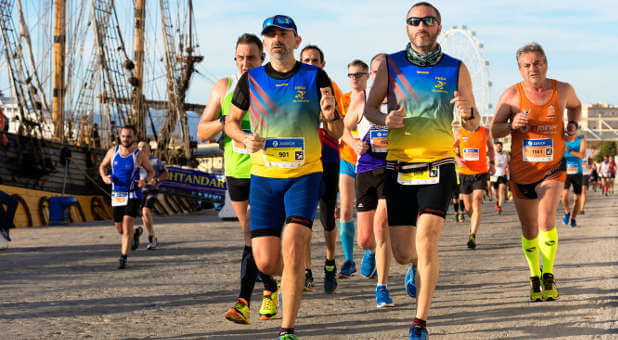For a moment, it seemed like we were so close. In Israel, as in some locations in the U.S. it looked like the coronavirus pandemic had turned a corner in June.
But in July, both nations saw a resurgence in new cases and, exercising an abundance of caution, both put the brakes on reopening.
This is discouraging for everyone, but it poses unique challenges to people of faith. For months we have prayed for healing for those who have been affected by this virus and for a swift end to the pandemic. We’ve made sacrifices for the greater good, isolating ourselves in our homes, wearing masks and even staying away from our churches and synagogues.
And we’ve prayed, too, for those suffering from the devastating effects of the lockdown itself—for those who have lost jobs or entire businesses, for those whose anxiety and depression has been magnified by isolation, for the children whose education has been put on hold. Now, it may seem like all of our prayers and our efforts to “change God’s heart,” and end the pandemic, were in vain.
In life, we want to see cause and effect. If we are kind to others, we expect them to be kind in return. If we work hard, we expect to receive a fair paycheck. If we pray with all our heart, we want our prayers to be answered like they were for Isaac and Rebekah in Genesis 25:21.
At first glance, the account here seems so simple and straightforward: “Now Isaac pleaded with the Lord for his wife, because she was barren; and the Lord granted his plea, and Rebekah his wife conceived.” Prayers were offered to God and, in short order, were answered.
But there’s more to this story. We must remember that this wasn’t the first time Isaac had prayed for children, nor the second time, nor the third time. The chapter also tells us that Isaac was 40 years old when he married Rebekah and 60 when she became pregnant. In fact, Isaac and Rebekah had been praying for children for 20 years. Their prayers were answered—but in God’s time, not theirs.
Throughout 20 long years of devout prayer, they never gave up hope, keeping the doors open for God to answer them!
So often this is exactly how prayers of petition work in our own lives. Sometimes we pour out our hearts to God and our prayers are answered immediately. However, more often than not, we don’t get instant results. When we don’t, it’s easy to give up after praying for the same thing over and over again. Our efforts may seem futile.
But the powerful lesson that we learn from Isaac and Rebekah is that we must press on and forward with our prayers. The very next prayer may be the one that opens the door.
Prayer is a marathon, not a sprint. And it’s an investment, not a transaction. Many truths can be found in paradox, because God is bigger than our limited comprehension. And prayer is one of the biggest paradoxes of all: the most important time to pray is when we feel like giving up.
Psalm 130:5 tells us, “I wait for the Lord, with bated breath I wait; I long for His Word!” And so, we wait—sometimes longer than we want to—in expectation that God will provide what we need. We don’t lose hope. We persevere. Prayer must be as much a part of healing our nations as scientific and medical interventions.
Every year, at the International Fellowship of Christians and Jews, we actually devote an entire month to focus on prayer. We offer to take the requests of our faithful donors to the Western Wall in Jerusalem, one of the holiest sites in Judaism. And every year, we receive tens of thousands of prayer requests from both Christians and Jews. We take this opportunity seriously, because we know there is power in prayer. Prayer is like a mighty reservoir; each prayer that we send up to heaven adds a little bit of water, until our heartfelt prayers to God reach the top, and the blessings come spilling over the dam.
I want to invite everyone to join us as we persevere, in faith and prayer, against this crisis. I hope you will send us your prayers so that we may take them to the Western Wall and appeal to God on your behalf.
Together, as we work to heal the world and eradicate this virus, let us use one of the most powerful weapons we have to lift each other up as well. Let us do so, secure in the knowledge that God will answer our prayers—in His time. {eoa}
Yael Eckstein is the president of the International Fellowship of Christian and Jews. As president of The Fellowship, she also holds the rare distinction of being a woman leading one of the world’s largest, religious not-for-profit organizations, having raised $1.8 billion—mostly from Christians—to assist Israel and the Jewish people. She is the author of the newly released Generation to Generation: Passing on a Legacy of Faith to Our Children.














































